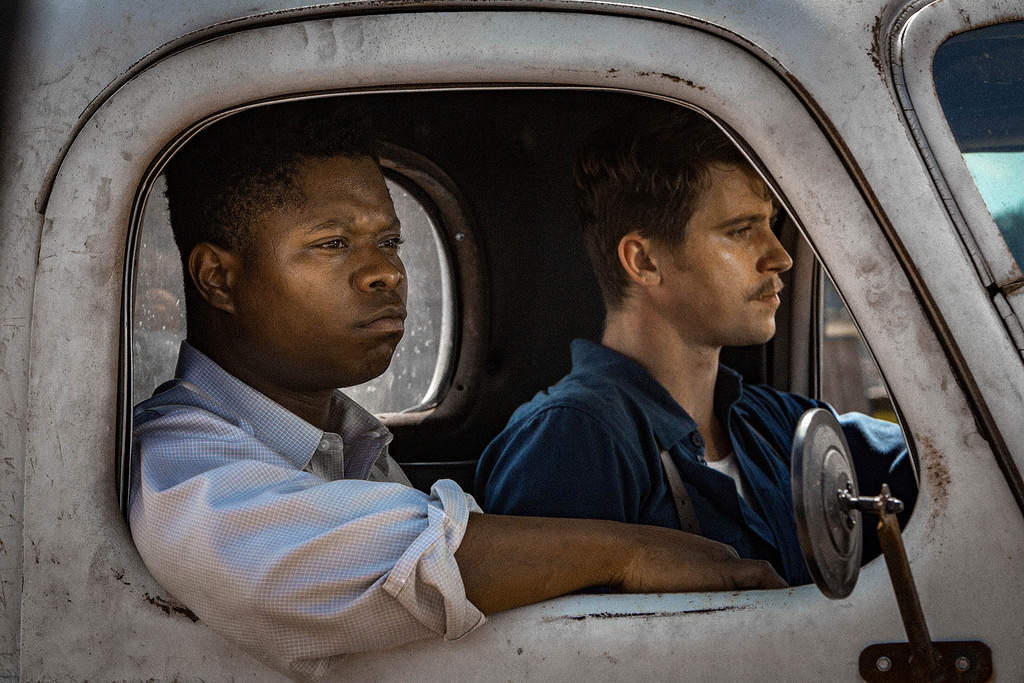
As a gay black woman, director Dee Rees might be statistically the least likely film-maker to win an Oscar ever.
That is at least going by past winners. In its 88-year history, only four women have ever been nominated for Best Director at the Oscars and only one has ever won.
Again, four black directors have been nominated for the award, none have ever won. Only sixteen openly gay directors have been nominated and of those only five won.
To say the Academy has some (conscious or unconscious) bias is the understatement of the century.
Still, here we are, just under two months away from the close of the entry period for films competing for Oscars, and Dee Rees’ film, Mudbound is in serious contention for a lot of huge wins and nominations.
The movie, starring Carey Mulligan and Mary J Blige along with a cast of relative unknowns, is a period drama dealing with racial tensions in rural Mississippi just after the end of the second world war.
How well do you really know your competitors?
Access the most comprehensive Company Profiles on the market, powered by GlobalData. Save hours of research. Gain competitive edge.

Thank you!
Your download email will arrive shortly
Not ready to buy yet? Download a free sample
We are confident about the unique quality of our Company Profiles. However, we want you to make the most beneficial decision for your business, so we offer a free sample that you can download by submitting the below form
By GlobalDataDee Rees had to make the film independently of any major studio. In an appearance at the New York Film Festival, Rees claimed other studios were afraid to touch it.
After the film opened to critical acclaim at Sundance Film Festival, there was reportedly interest from all sorts of studios including Fox Searchlight and Focus Features.
But, as Variety reports, a bidding war never began over the film. Eventually, after a week, Netflix stepped up offer $12.5 million for the distribution rights to the film.
Mudbound is due out on Netflix worldwide 17 November.
This was something that Dee Rees was incredibly excited about.
Speaking at New York Film Festival she noted that giving a worldwide audience the chance to all see and experience her film at the same time was thrilling to her. She described Netflix’s chief content officer Ted Sarandos as a visionary.
She also hailed Netflix for increasing her films’ longevity as people could watch them long after they left cinemas.
How streaming services get movies to the Oscars
Of course, Mudbound being nominated for an Oscar wouldn’t be the first streaming movie to have done so. Amazon‘s Manchester By The Sea scooped a few nominations last year, for example.
However, the difference between Amazon’s approach and Netflix’s is that Amazon aren’t upsetting the established order of things quite so much.
Manchester By The Sea was shown in cinemas first. Then, after an appropriate time period, it appeared on the streaming service. Netflix is playing a lot more fast and loose with the Oscar’s rules.
The trouble with a simultaneous worldwide release is that it technical makes Netflix’s films inadmissible.
One of the rules for entering the Oscars is that films must have had a minimum theatrical run of one week in both New York City and Los Angeles.
With Mudbound Netflix are circumventing that rule by essentially paying for cinemas to screen their films in both cities. Whether anyone shows up to those screenings is of no real import. As long as they get the showings, they’re eligible.
Of course, some cinemas are furious with Netflix’s approach and boycott these attempts. They argue that Netflix’s business model essentially cuts out the middle-man and they lose profits.
After all, if all films were on via streaming services, why would anyone bother paying for cinema tickets? AMC, Regal, Cinemark and Carmike are all cinema chains who’ve boycotted Netflix’s films.
Will this strategy work?
Still, all this might stand against Mudbound for the Oscars committee. At a private members’ meeting in early October 2017, one prominent Academy member apparently questioned whether Netflix’s winning awards would represent the ‘cheapening of an Oscar’.
And there is already a case study for comparison. Netflix tried a similar strategy in 2015 with their film Beasts Of No Nation.
Despite the critical acclaim around the film, it never received nomination for an Oscar. In fact, Idris Elba who won a Screen Actor’s Guild award became the first ever movie star to win a SAG award for their performance and not be nominated for an Oscar.
Netflix are playing a dangerous game here, make no mistake.
Netflix’s philosophy
Still, maybe whether or not Mudbound wins an Oscar isn’t what really matters to Netflix. An Oscar win would put the film on people’s radars and drive subscriptions. On the other hand, if all they hope to do is draw attention, an Oscars snub would accomplish that too.
So what does Mudbound have in common with other Netflix bought projects? Various traditional networks rejected Stranger Things, House Of Cards, and Sense8 before Netflix picked them up.
In addition, in our calculation of the most popular Netflix original series we found that over half the programmes on the list were fronted by women, ethnic minorities, LGBTQ characters, or characters with disabilities.
What really seems to matter to Netflix is not the amount of awards they could win but providing content users just can’t find elsewhere. This seems the common factor in all of Netflix’s acquisitions.
And even if Mudbound doesn’t prove to be an Oscar-winner, it could, at least signal to other filmmakers that projects that mainstream studios wouldn’t fund can find a home. In turn, that will allow Netflix to bolster its original content, providing viewers even more reasons to subscribe.
The additional viewers means more directors start to take Netflix seriously as a real contender in the world of production. Eventually, this will lead to Netflix becoming an even bigger producer of quality content than ever before. It’s a seriously profitable self-fulfilling prophecy.
Considering Netflix just inked a major deal for Martin Scorsese’s The Irishman, it’s a strategy that’s clearly working.
The big studios might not like it, but Netflix are winning subscribers by doing the exact opposite of their rivals, and it seems to be working for everyone.






